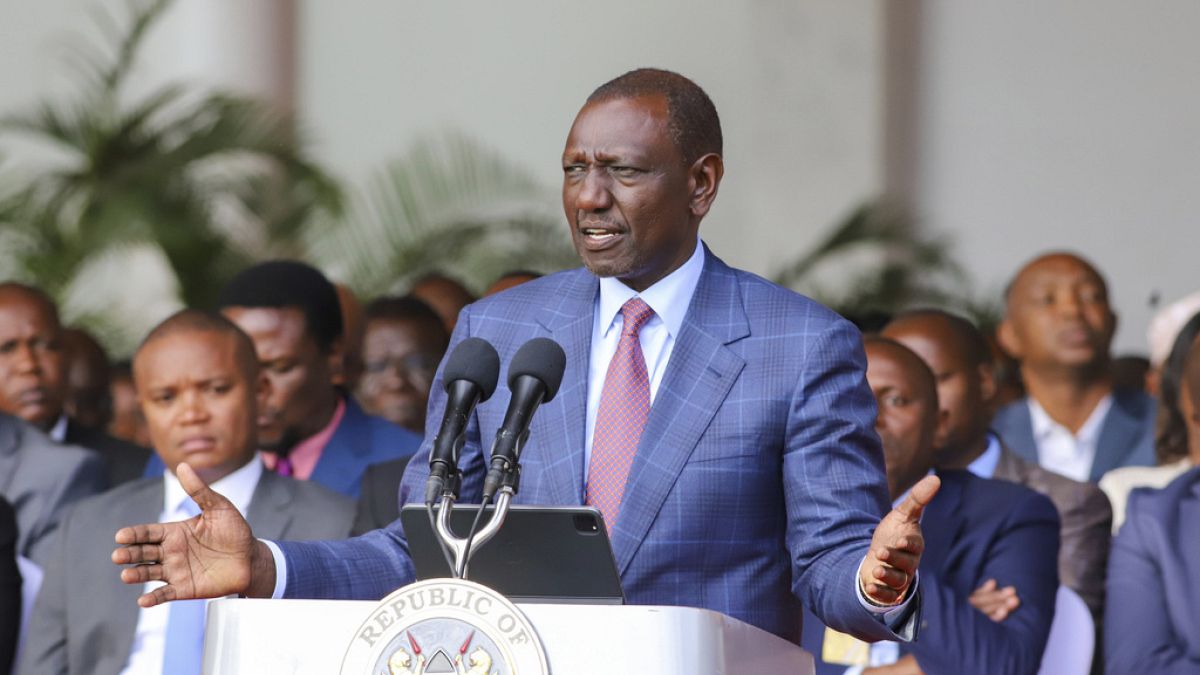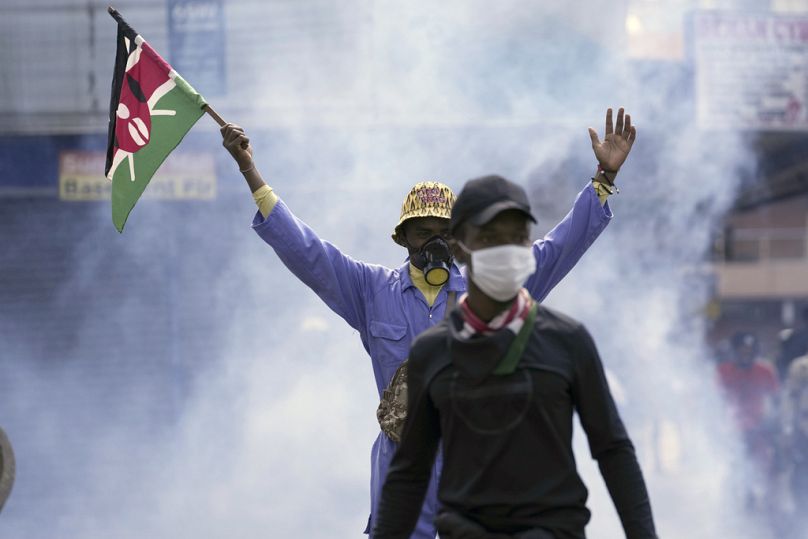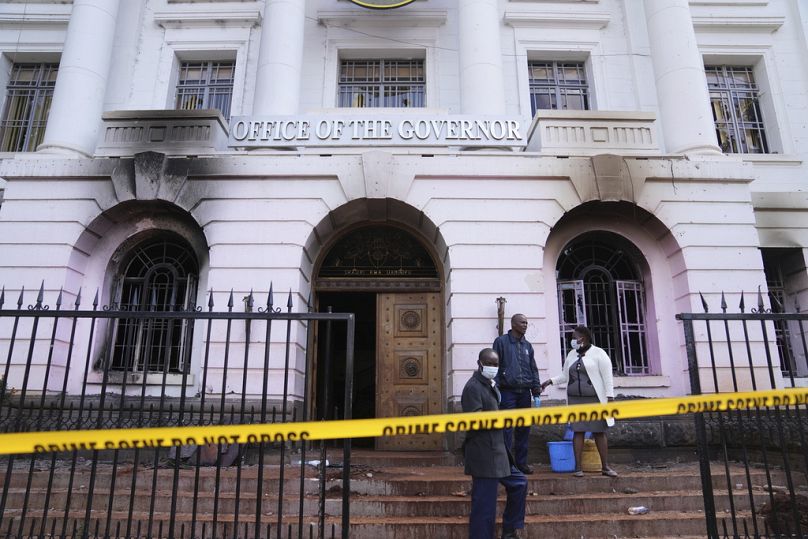
Kenyan President William Ruto said on Wednesday that he won’t sign into law a controversial finance bill proposing new taxes – just one day after protests in the country turned deadly.
In the biggest assault on Kenya’s government in decades, the incident saw several people shot dead and buildings on fire.
The government defended the bill- which includes several tax hikes- by saying it was necessary to raise funds to pay off debt. Ordinary Kenyans said the bill would cause economic pain as millions struggle to get by.
The chaos on Tuesday led the government to deploy the military, with Ruto calling protesters’ actions “treasonous.”
In an apparent concession, the president has now said the bill caused “widespread dissatisfaction” and he has listened and “conceded.”
It’s a major setback for Ruto, who came to power vowing to help Kenyans cope with rising costs. Instead, he has seen much of the country, mostly led by the youth, unite in opposition to his latest attempt at reforms.
“It is necessary for us to have a conversation as a nation on how to manage the affairs of the country together,” he said.

What has the aftermath of Tuesday’s violent protests been like?
Kenyans faced the lingering smell of tear gas and military in the streets on Wednesday, the day after the latest protests saw thousands storm parliament, an act of defiance that Ruto had called an “existential” threat.
At least 22 people were killed, a human rights group said – and police were accused of some shooting deaths.
Ruto acknowledged these fatalities, calling the situation “unfortunate” and offered his condolences. He confirmed that about 200 people had been wounded.
The capital city of Nairobi has seen protests in the past, but activists and others warned the stakes were more dangerous on this occasion.
On Tuesday, Ruto vowed to quash unrest “at whatever cost”. He made those remarks before the announcement of more protests set to be held on Thursday.
These protests seem to have a different air to them, concerning some experts.
“We are dealing with a new phenomenon and a group of people that is not predictable. If it would have been the normal demonstrations, I’d say it will fizzle out with time, but we don’t know whether these people will fear the army,” Herman Manyora, an analyst and professor at the University of Nairobi, told journalists.
He added that the president missed an opportunity in his national address on Tuesday night to adopt a more conciliatory approach.
Why are the protesters taking to the streets of Nairobi?
Kenyans have been uniting beyond tribal and other divisions in the effort to keep the finance bill from becoming law. It would have raised taxes and fees on a range of daily items and services – from egg imports to bank transfers.
There were no reports of violence on Wednesday, but there was fear in the city. Civil society groups have reported abductions of people involved in recent protests – and expect more to come.
The High Court ordered police to release all people arrested in the protests. Ruto said those allegedly abducted had already been released or processed in court.
Many young people who helped vote Ruto into power in 2022 over his promises of economic relief now object to his wide-ranging reform plans.
On Tuesday, the Kenya National Human Rights Commission said 300 people were injured and a further 50 were arrested.

Opposition leader Raila Odinga called for dialogue, asserting that Kenya’s constitution had been suspended. “Kenya cannot afford to kill its children just because the children are asking for food, jobs and a listening ear,” he said in a statement.
In Nairobi, a regional hub for expatriates and home to a United Nations complex, inequality among Kenyans has sharpened along with long-held frustrations over state corruption.
The booming young population is also frustrated by the lavish lifestyles of politicians including the president himself. Some who had passionately supported Ruto, who won power by portraying himself as a “hustler” of humble background, now feel betrayed.
The youth – otherwise known as Gen Zs – mobilised the protests and sought to keep lawmakers from approving the finance bill on Tuesday.
Ruto had had two weeks to sign the bill into law and was away from Naroibi as the protests raged on.
His concession was criticised as “self preservation” by a leader worried about his reputation, opposition Senator Edwin Sifuna wrote on X – formerly Twitter.
The events mark a sharp turn for Ruto, who has been embraced by the United States as a welcome partner in Africa as frustration grows elsewhere on the continent with the US and some other Western powers.
Now Kenya’s government, along with protesters, face pleas for calm from partners including the US, which joined a dozen other nations in a statement on Tuesday expressing “deep concern” over the violence and apparent abductions.
“How did we get here?” Kenya’s vice president, Rigathi Gachagua, asked on Wednesday in nationally broadcast comments after the president’s turnabout, openly wondering how the government had become so unpopular in just two years. “We were the darling of the Kenyan people,” he added.





